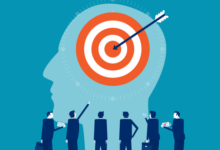Is Buying a Business the Fastest Way to Entrepreneurship?
Entrepreneurship has always been associated with starting from scratch—building an idea, finding customers, and growing into a profitable venture. But in today’s fast-moving economy, many aspiring entrepreneurs are exploring an alternative route: buying an existing business. This approach allows individuals to step directly into ownership, bypassing some of the uncertainties of starting a brand-new venture.
But is buying a business truly the fastest way to entrepreneurship? To answer this, we must look at the advantages, challenges, and long-term implications of acquiring an established company versus building one from the ground up.
What Does Buying a Business Involve?
Before analyzing its speed and efficiency, it’s essential to understand what buying a business actually entails. Unlike starting from scratch, where you’re responsible for creating every detail, purchasing a business allows you to acquire an existing framework.
Typically, buying a business includes:
- Acquiring Assets – From equipment and inventory to intellectual property and customer lists.
- Taking Over Operations – Employees, suppliers, and systems are already in place.
- Assuming Contracts – Lease agreements, vendor contracts, and customer obligations transfer to you.
- Paying a Purchase Price – The transaction may involve cash, financing, or a combination.
This process allows you to bypass many startup struggles, stepping into entrepreneurship with a running head start.
Why Do Some Say Buying a Business Is Faster Than Starting from Scratch?
One of the strongest arguments in favor of buying a business is speed to market. Starting a business requires months, if not years, of planning, testing, and brand building. Buying a business, on the other hand, provides an instant launchpad.
Key reasons why it’s faster include:
- Existing Brand Recognition – Customers already know and trust the business.
- Immediate Cash Flow – Unlike startups, which take time to become profitable, established businesses often generate revenue from day one.
- Proven Business Model – You skip trial-and-error by inheriting systems that already work.
- Trained Staff – Employees are familiar with daily operations, saving time on recruitment and training.
This acceleration makes buying a business attractive to those eager to dive into entrepreneurship without long delays.
Is Buying a Business Always Less Risky?
Speed doesn’t always mean safety. While buying a business reduces the uncertainty of launching a new idea, it introduces other risks that buyers must carefully evaluate.
Potential risks include:
- Hidden Liabilities – Unpaid taxes, lawsuits, or debts could transfer to you.
- Outdated Systems – Some businesses may require immediate upgrades or restructuring.
- Overvaluation – Paying too much upfront can weaken profitability.
- Cultural Misfit – Employees and customers may resist changes in ownership.
This is why due diligence—thorough investigation before purchase—is vital to ensure the speed advantage doesn’t turn into a costly mistake.
See also: Office Window Cleaning: Everything Businesses Need to Know
How Does Licensing Play a Role in Faster Entrepreneurship?
Licensing has emerged as one of the most strategic ways to accelerate entrepreneurship through business acquisitions. By licensing a brand, product, or business model, entrepreneurs can bypass the struggle of creating recognition from zero.
Platforms like Throttl Licensing make it possible for aspiring business owners to connect with established brands and acquire licensing opportunities. This allows new entrepreneurs to:
- Enter markets quickly without developing a brand from scratch.
- Benefit from established intellectual property and trademarks.
- Build customer trust instantly by associating with a recognized name.
- Operate under proven models while maintaining entrepreneurial ownership.
Licensing provides a balance between independence and speed, giving entrepreneurs the ability to run a business while avoiding years of brand-building.
What Financial Advantages Come with Buying a Business?
Another reason buying a business is seen as a fast track to entrepreneurship is financial predictability. While startups often struggle with unstable cash flow, established businesses already have financial records to review.
Financial benefits include:
- Easier Access to Financing – Lenders and investors are more comfortable funding proven businesses.
- Existing Revenue Streams – Sales, contracts, and subscriptions provide immediate income.
- Valuable Assets – Real estate, equipment, or technology included in the purchase can reduce startup costs.
- Profit Forecasting – Historical data makes it easier to project future performance.
This financial clarity reduces uncertainty, speeding up both entry and growth.
What Legal Factors Should You Consider Before Buying?
Although buying a business is faster, skipping legal checks can slow you down later. Legal due diligence is crucial for a smooth transition.
Important considerations include:
- Business Structure – Understand whether you’re buying assets, shares, or both.
- Contracts and Leases – Ensure they’re transferable and enforceable.
- Licenses and Permits – Verify compliance with local, state, and federal laws.
- Employment Agreements – Review labor obligations and potential disputes.
- Intellectual Property Rights – Confirm brand ownership and transferability.
These legal steps ensure the speed advantage isn’t compromised by unexpected legal battles.
Does Buying a Business Guarantee Entrepreneurial Success?
While buying a business may be faster, success is never guaranteed. The new owner must still bring leadership, strategy, and innovation to the table. Businesses that thrive under new ownership often share certain characteristics.
- Strong Leadership Transition – Owners who quickly gain employee and customer trust succeed faster.
- Strategic Growth Plans – Acquiring is just the beginning; scaling requires vision.
- Customer Retention – Maintaining relationships is critical to sustaining revenue.
- Adaptability – New owners must adapt operations to evolving markets.
Success depends on the buyer’s ability to continue and improve upon the established foundation.
How Does Buying Compare to Franchising or Starting Fresh?
To truly understand speed to entrepreneurship, we must compare buying a business with franchising and starting from scratch.
- Buying a Business – Fastest in terms of entry since you inherit a complete operation.
- Franchising – Provides brand support and training but may require setup time before opening.
- Starting Fresh – Offers the most freedom but requires the longest time for profitability.
Each approach has trade-offs, but if speed is the priority, buying a business generally ranks first.
What Challenges Should You Expect as a Buyer?
Even though buying a business is quicker, the transition isn’t always smooth. Entrepreneurs should prepare for challenges that could arise immediately after purchase.
Common challenges include:
- Cultural Resistance – Employees may be skeptical of new leadership.
- Operational Gaps – Outdated technology or inefficient systems may need upgrades.
- Customer Retention Risks – Some clients may be loyal to the previous owner.
- Integration Issues – Merging your ideas with existing processes requires careful balance.
Anticipating these challenges ensures a smoother transition into entrepreneurship.
Can Buying a Business Truly Be Called “Entrepreneurship”?
Some argue that entrepreneurship is about creating something new, not acquiring something existing. But ownership and innovation come in many forms.
Buying a business is indeed entrepreneurship because:
- You’re taking financial risk, a hallmark of entrepreneurship.
- You have the power to grow, innovate, and expand the company.
- You become responsible for leadership and decision-making.
- You transform an existing foundation into your own success story.
Entrepreneurship is not defined solely by originality but also by the ability to create value—and buying a business fits this definition.
Conclusion: Is Buying a Business the Fastest Way to Entrepreneurship?
So, is buying a business the fastest way to entrepreneurship? In most cases, yes. Acquiring an existing company allows entrepreneurs to bypass startup struggles, gain immediate revenue, and leverage proven systems. While there are risks, licensing platforms like Throttl Licensing make entry even faster by offering connections with established brands.
However, speed doesn’t eliminate responsibility. Buyers must still conduct due diligence, review legal and financial obligations, and bring strong leadership to the table. Ultimately, buying a business offers a shortcut to ownership, but long-term success depends on the buyer’s vision, adaptability, and commitment.
For those eager to step into entrepreneurship without the delays of starting from scratch, purchasing a business may just be the fastest—and smartest—path forward.






